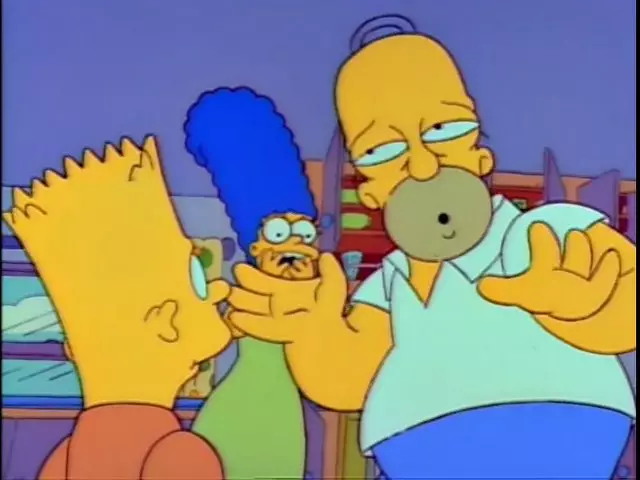My Recollection
Hump and dewlap, hump and dewlap. My name is Mr Burns. Señor Xtapolapocetl.
What is blood without modern understanding? How many other pieces of knowledge create that modern understanding? Molecules, air, the brain, the heart, how much does one have to know before blood is anything less than magical? For eons, the magic of blood was as obvious as one’s own hand and not without good reason.
The Olmec knew the magic of blood, and that is one of the few things we know about them. Lost to time, a force far more indiscriminately savage than colonial greed, Olmec is a word meaning “rubber people” used by the Aztec civilisation some 1700 years their junior. We don’t even know their name, but the remaining reliefs carved by their culture tell us they knew the magic of blood. Autosacrifice, self-harm as they call it today, ritualised bloodletting to gain the attention or favour of gods more pragmatically transactional than the distant political figures of modern faith.
The magic of blood is something that lives on in the primal folds of our endlessly built upon human brains. The smell sends alarms rippling through passages that our surviving ancestors honed to perpetual attentiveness. Even the sight of it is magic. You can take a human, with human skin, human eyes, very human screams, and gut this person in any number of entertainment media, but god help you if the blood is red. An orc can have a head cut off but it’s black so it’s fine. The soldiers of the Rebel Army explode but it’s white so it’s okay. Doom’s zombie soldiers spill their guts but it’s green so it’s fine. Mortal Kombat is still mortal, but the offending red is removed so it’s less of a danger to our kids. So powerful is this magic that 4 red digital representations were deemed an unacceptable psychic threat to the youth of the world.
Nothing shatters the modern mind quite like the sudden intrusion of magic and I experienced this first hand when I tore my penis during sex.
If the potential for sex makes you stupid, then imminent orgasm strips you of everything human. It felt good, with a twist of threat, like a dash more hot-sauce than you know you can handle. My amphibian brain, my reptile brain, my mammal brain, and my primate brain, were all in agreement: stay the course, you’re doing great. My human brain couldn’t help but point out that bits of me can only stretch so far.
My foreskin and I were playing a game of chicken in trains, the tragedy was inevitable but we both gripped the wheels like it mattered. Amidst the war of fluids, something has to really stand out to get attention, droplets tickling my taint were enough to warrant a glance. Autosacrifice. If any god were paying attention, I hope they were happy.
There’s a 70s Italian horror quality to seeing what looks like a recently headless chicken being withdrawn from a confused woman, and an intensely disturbing modern psychological horror to realising that it’s your penis. The combination is too absurd to be anything other than anime.
The past few thousand years went out the window and I was seeing the magic leave the wand. The wound itself was incredibly minor, barely even a scratch, but it bled like a young Ric Flair. There was nothing to do but grab it like the loose lid of a shook soft-drink and wait for the magic to wear off.
But the potential for sex makes you stupid, so I threw a condom on to see if I could at least finish.
The Episode.
While certainly not the only approach, for the purposes of more neutral exploration of a work, analysis of structure is good because there is no such thing as structureless. Like imagining a colour that doesn’t exist, the second you do it does, so there is no absence of structure that isn’t just a new one.
Sitcoms are the Duplo of structure, 5 big easy pieces that none of us can choke on: First act, ad, second act, ad, final act. Sometimes the greedy fuckers slip a little ad break in between the final act and the episode tag, but otherwise (with the exception of maybe budget) all half-hour narrative television is the exact same thing.
An artist working in film has wildly different possible techniques than an artist working in marble, so we can look at a statue and a movie as two very different things quite easily. One can describe human faces in a way that sums them up perfectly but makes all humans sound identical. Obviously, this is not the case, we automatically miss similarities for the differences, regardless of how small, and the same is true of our arts. Two artists working in marble aren’t as different when compared to each other, but that fact becomes assumed and so ignored.
Even shows that are otherwise batshit, like David Lynch’s other televisual masterpiece On the Air, or Lars von Trier’s actually good The Kingdom (an hour-long drama), still build themselves from the same Duplo. Deviating from structure is seldom actually attempted let alone accomplished. Mostly you just get a minor temporal reordering, a basic reshuffle at best, because you simply can’t make a movie out of marble. But there are little things one can do, even if only occasionally.
Blood Feud isn’t about anything. Homer pressuring Bart to donate blood to Burns is a story, and it’s resolved in seven minutes. Bart mailing Homer’s angry letter to Burns and Homer having to get it back is a story, and it’s resolved in 7 minutes. Burns firing Homer creating a conflict for Smithers who gets Homer his job back is a story, and it’s zipped through in 3 minutes. Then there’s 3 minutes of Burns mucking about in a mall leading into the denouement.
The commentary refers to this structure as an unusually long first act. They place the shift at the point where the letter is sent, but they do this because it is a sitcom cliché first done in The Honeymooners, so to them it stands out as separate. But that shift doesn’t send us to the story proper, as the letter is still only a 7-minute chunk with its own focus. To be an act, it must be a part of a whole. Structural factors of time, perspective, and shifting narrative motivation mean this is a tale of haphazard pieces and not simply some mis-timed acts.
Jumbled timing could at least be covered over with other elements, but here too the episode is unfocused. It’s a Homer and Burns story, then it’s a Homer and Bart story, then it’s a Burns and Smithers story. Shifting perspective and narrative goal is fine if one is done and the other is left to anchor, shift both and there is no coherent dramatic purpose to the story. The closest thing to a through-line in this whole mess is Lisa’s vocabulary lessons for Maggie. This is not opinion, even the writers knew this, which is why they have the family directly address it as they discuss the ultimate meaning of the events while gazing at Señor Xtapolapocetl.
There are certain things that only work when juxtaposed against something else. Late Night hosts, like Conan, will often wring good audience reactions from jokes that have fallen flat by making light of that fact. For this to work, though, it requires the presence of good jokes for the bad one to stand out against.
The episode wrap-up for Blood Feud is, by itself, a grotesque thing. Covering for the fact that your story was a disjointed series of perspectives and events that didn’t go anywhere by having your characters speak that fact aloud is like wringing a laugh out of being accidentally covered in shit, except it wasn’t an accident and you smeared it on quite deliberately. But, at least when the episode came out, it worked, and I give it that benefit again as I watch it now.
It worked for two reasons. Firstly, meta was new, rare, and was earned as the ramshackle mess stood in contrast to most of the other episodes. As the show deteriorated, these messes became the standard (Kill the Alligator and Run changes every 3 minutes) and the meta became less a rare nod to audience intelligence and more a staggering insult to it (Great Money Caper is shiiiiiiiiiiiit), but here it’s the seldom usable tool being seldom used.
The second element calls back to Three Men and a Comic’s use of narrative impetus, which this episode uses a modified form of. There’s no similar point, the comic that is valuable at minute 5 to minute 25 isn’t mirrored here, but the lack of traditional narrative structure leaves each moment of the show with its own small immediacy, the sense of which carries through like the comic, even if each sense is a separate thing. This, combined with the logical flow of events and overall great comedy of the episode, keeps the lack of plot well hidden.
The reason you don’t see this done much (few works try this, fewer succeed, near none of them are popular, and none are sitcoms) is because, while it’s fun while it’s going, the inevitable sitcom end is happening whether you like it or not. This structural inevitability is the thing that forces all else and creates the fault when else isn’t done. Blood Feud is a good episode while it’s going because there is a simple, realistic (for the format), and logical coherence to events. There’s nothing jarringly wrong with it until the end, when the necessity of a pattern shows the lack of one. The means of getting around this is a kind of GET OUT OF JAIL FREE card that a show has to earn and seldom use, otherwise you become less a comedian making light of a failed joke and more a shitty comedian. In its spot in history, though, Blood Feud is funny and near daringly fresh.
Jokes, lines, and stray thoughts.
The intro joke of the sign is something that became a staple of the series, a cold start in a good joke with a nice nest of smaller jokes. Supporting a big obvious thing like the sign with a few lines like Homer’s and Quimby’s, is like structural reinforcement.
This episode establishes the Smithers/Burns relationship for effectively the rest of the series too. Smithers as the “Burnssexual”, beyond even a toady and into complete worship.
Homer putting up the boomer meme signs at work, and being really proud of himself while doing it, is a great little moment. It could have simply been a shot of them working, but this moment stands out as both more interesting through its rarity and an enhancement of character.

It’s interesting actually, because Homer is usually the target of jokes, so he is seldom actually diegetically funny and so we don’t really get an idea of what he finds funny, save schadenfreude. He probably learned to use the printer at work to get his “you want it when?” sign made.
It’s only four minutes in that Homer becomes the show’s focus, which would be fine had not a significant amount of the time given to Burns and Smithers been so focally emotive.
Hump and dewlap is an episode quote that got around when I was a kid. They could be any two things, but if you had two things, one in each hand, you could say hump and dewlap. Hump and dewlap.
Channel 10 used the “Yes alright, woo!” scene as a promo moment for ages.
Homer mixing his myths is a great use of in character comic stupidity to further the plot.
“It was the olden days” explaining the lion’s riches is a great line. Homer’s whole thing about riches is so beautifully based on maybe a few cartoons. It’s not even money he’s expecting, but gold and jewels.
I’m gonna assume that Otto’s friends aren’t in University, so I’m guessing when he says his friends are in school, he means the middle schoolers he hangs out with.
The lift gag is a goodun, the half dooted song is the icing.
In Australia, you get blood. I don’t know what it’s like in the States, but it seems odd that a super-rich couldn’t get the blood he needs easily. One of Australia’s magnates got a liver or something off his helicopter pilot, and that was a whole organ. It’s a weak McGuffin but the focus is moved quickly enough that it doesn’t break. That’s a good lesson for general McGuffin use, actually.
Homer is meant to be the safety inspector, which I’d figure meant moving around the plant and, you know, inspecting. He’s either at his station or wherever the writers plonk him.
The sport burns is playing is Jai alai, which most of us thought was from Tron. It’s a derivative of a series of wall and court based games that come from the Basque, which explains a bit. The ball moves insanely fast, around 300kmh, and there have been fatalities as a result. There’s usually only a wall on the left side.
The writers talk about the “blood of a young boy” line and shot, being about giving the impression that the rest of the story was about Burns wanting more blood. This would have been more coherent, as then the narrative and perspective would have shifted less.
Lisa turning on the sprinkler is beautiful. It’s so fundamentally pathetic, a man in his backyard believing all his problems solved, standing under a weakly spraying sprinkler as though it’s a fireworks display. A lot of the absurdity in the show comes from a juxtaposition between character impressions of reality and the grim reality it’s covering. Her turning it off as the family leave the dimwit to the failure his life should have taught him to expect, is a great twist of the knife.

Homer’s land of make-believe bits are great. His continued reference to little hats creates a fun picture of his ideas and of him.
Homer’s dream sequence is good, and the use of colour in moments like this has been a strength of the series. A good episode for lighting, actually, as there are a few other great examples coming up.

Homer’s giant pancake stack = in character. Homer’s dainty tea cup = what?

Bart mailing the letter is a bigger part of the story than the story wants it to be, because it would dominate the rest of it. His motivations require combinations of malice or stupidity that are reasonably out of character for him. It bothered me watching it as a kid, and it bothers me now. How retarded are you? This is one of those moments that makes me yearn for a Bart punishment episode.
There are a few great poses and shots in this sequence though. Homer’s arms hanging by his side as Bart walks in, the slow zooms, Marge’s face when Bart explains that he mails the letter. Most of this is easy to miss but seeing them adds a lot. Energy into the missable things is a sign of care and quality.


Getting the letter back is a good example of the way comedy has different uses for time than drama. It goes nowhere and accomplishes nothing, but it’s funny watching Homer attempt a series of exceptionally dumb moves to get the letter. Would better plotting mean a better narrative? Yeah, but if you’re sacrificing jokes for plot, your comedy is gonna suck.
Similar to the point earlier, one large joke can be backed up well by a smaller joke that suggests something more going on. Barney’s support of Homer kicking the mail box suggests more than the joke, and this depth lends more weight.
Some more early shades of Burns’ references all being turn of the 19th to 20th centuries with his reference to Countess von Zeppelin. Probably a reference to the granddaughter of airship inventor and guy who looks exactly like you imagine, Ferdinand von Zeppelin. She once threatened to sue Led Zeppelin for using the family name while they were in Copenhagen.

Homer pretending to be Burns is gold. A: The fucking act at all. If this will work at all, they don’t know who you or Mr Burns are so the act is needless. B: The fucking voice and manner. Just this beautiful classless impression of the upper class he’s gleaned from ads for fancy mustard. C: That he doesn’t know his boss’ name. D: Him thinking, then saying, “I don’t know” in the same voice. E: That it was all Bart’s plan. This is a run of funny things that builds from simple to planned brilliance and it take up less than 15 seconds. It’s hard to turn a common phrase into a catchphrase but, “I don’t know” got legs off that. Invader Zim would run with it hard some years later.
Homer would have gotten in less trouble for running away with the letter than he did for letting Bruns read it.
Joey the goon is a fun side character, probably gets his most characterisation here.
“I’ll just crush him like an ant”
On the perspective shift. The way you can pick this is that it comes back from the ad break to Burns. This is the show deciding whose perspective to see in all this and they use it to fuel the rest of the story. This scene is another beautifully shot and lit one.
In other episodes, Homer’s job loss or potential job loss is the narrative focus, here you get a 10 second scene that works only to get a line in about Bart and to give reason to Smithers’ rebellion.
Speaking of, this is a good moment for Burns. Cartoon villain that he is, he can still be reached by reason.
Lisa participating in the prank phone calls was always a nice touch. As she was forced to be the mature voice, she grew apart from her brother.
This tail end is just a few gags in a row. The prank call, the weird mall stores that are now sections on Ali Express. The excellent Smithers playing the banjo bit.

A $32,000 Olmec head could probably be sold. I’d offer $50 for it on Gumtree.
I do love the Nahuatl phonemes
The head is a great piece of continuity too, somehow getting into the basement and even the attic.

Each character points out the narrative gaps in the story, differing starts and finishes that leave the conclusion without one.





11 replies to Blood Feud
alldreamsfalldown on 22nd July 201922 Jul 19 said:
No sign off this time?
Gabriel on 22nd July 201922 Jul 19 said:
Yours in forgetting to do that, Gabriel.
Larger, More Powerful Alex on 23rd July 201923 Jul 19 said:
Also adding to the Homer pretending to be Mr Burns scene is the fact that as dumb and poorly thought out as the plan was, there is not a single trace of suspicion in the mail clerks voice, indicating the plan could have worked if Homer could have just gotten over one incredibly low hurdle .
Gabriel on 28th July 201928 Jul 19 said:
It's got that great layered construction thing, like a symphony, where you can identify individual elements when you pay attention, but working together, the whole is amazing.
Magnumweight on 23rd July 201923 Jul 19 said:
This episode, more than any other this season, seems to escape my brain no matter what. I can remember a vague sense of the plot but most of the meat of it seems like a grey haze. Homer at the post office is the only bit that sticks solidly in the mind, and I'd put it up there with the best of this season, the rest of the gags seem to go forgotten about an hour after I see them.
I had/have a Simpsons Treehouse of Horrors comic book collection that had the Xtapolapocetl head in a prominent role in one story. A bunch of Latinos bring the head food as an offering on Halloween. Homer obviously eats the food, causing zombies to appear and the only way to send them packing is to give the head some more food. I remember it being one of the weaker stories in the collection, then again it was competing with Homer literally becoming a human cockroach and an invasion of sentient Christmas trees that hippie Lisa has to prevent. The Halloween comics are weird in that they seem like test cases for future episodes, such as one comic where Sideshow Bob became the Blob leading to an episode where Homer becomes the Blob.
Will you be doing a season retrospective like you did with the first season?
Gabriel on 23rd July 201923 Jul 19 said:
Yeah, I'll be doing a retrospective after every season. The story doesn't have a hook which is why it's hard to get it to stick. Xtapolapocetl is just an object among a few good lines, so it's more an act of remembering a bunch of separate numbers than a chunked whole.
Alex on 26th July 201926 Jul 19 said:
Something I've noticed about Family Guy is people have their favoured cut away gags but no one can remember what episode they're from because they have no context by design. I get that feeling with some of these early Simpsons because of the scattershot story lines sharing the same time as otherwise memorable jokes/lines that don't have major relevance, good example being Homer at the post office. Great scene, I could never remember what episode it was in. From memory season 3 is where they start to get into their stride of intertwining plot and gags, so I'm looking forward to your upcoming write-ups on them.
Gabriel on 27th July 201927 Jul 19 said:
It's akin to remembering single numbers vs chunking. The arc functions as a whole you can grab other memories from, without that you are just trying to remember dozens of individual pieces.
Kyle Brett. on 27th July 201927 Jul 19 said:
'War balloon inventor' is a beautiful string of words.
"Isn't Morton related to mortuaries or death" - Gabriel Morton [LDO Gabriel Knight: Sins Of The Fathers] (2014).
Morton Name Meaning. English and Scottish: habitational name from any of the many places called Mor(e)ton, named in Old English as 'settlement (tun) by or on a marsh or moor (mor)'.
You're welcome Mr MoorTown.
Gabriel on 28th July 201928 Jul 19 said:
Neat
Kyle Brett. on 28th July 201928 Jul 19 said:
You're welcome.
★░░░░░░░░░░░████░░░░░░░░░░░░░░░░░░░░★ ★░░░░░░░░░███░██░░░░░░░░░░░░░░░░░░░░★ ★░░░░░░░░░██░░░█░░░░░░░░░░░░░░░░░░░░★ ★░░░░░░░░░██░░░██░░░░░░░░░░░░░░░░░░░★ ★░░░░░░░░░░██░░░███░░░░░░░░░░░░░░░░░★ ★░░░░░░░░░░░██░░░░██░░░░░░░░░░░░░░░░★ ★░░░░░░░░░░░██░░░░░███░░░░░░░░░░░░░░★ ★░░░░░░░░░░░░██░░░░░░██░░░░░░░░░░░░░★ ★░░░░░░░███████░░░░░░░██░░░░░░░░░░░░★ ★░░░░█████░░░░░░░░░░░░░░███░██░░░░░░★ ★░░░██░░░░░████░░░░░░░░░░██████░░░░░★ ★░░░██░░████░░███░░░░░░░░░░░░░██░░░░★ ★░░░██░░░░░░░░███░░░░░░░░░░░░░██░░░░★ ★░░░░██████████░███░░░░░░░░░░░██░░░░★ ★░░░░██░░░░░░░░████░░░░░░░░░░░██░░░░★ ★░░░░███████████░░██░░░░░░░░░░██░░░░★ ★░░░░░░██░░░░░░░████░░░░░██████░░░░░★ ★░░░░░░██████████░██░░░░███░██░░░░░░★ ★░░░░░░░░░██░░░░░████░███░░░░░░░░░░░★ ★░░░░░░░░░█████████████░░░░░░░░░░░░░★ ★░░░░░░░░░░░░░░░░░░░░░░░░░░░░░░░░░░░★
Comment on Blood Feud
To reply, please Log in